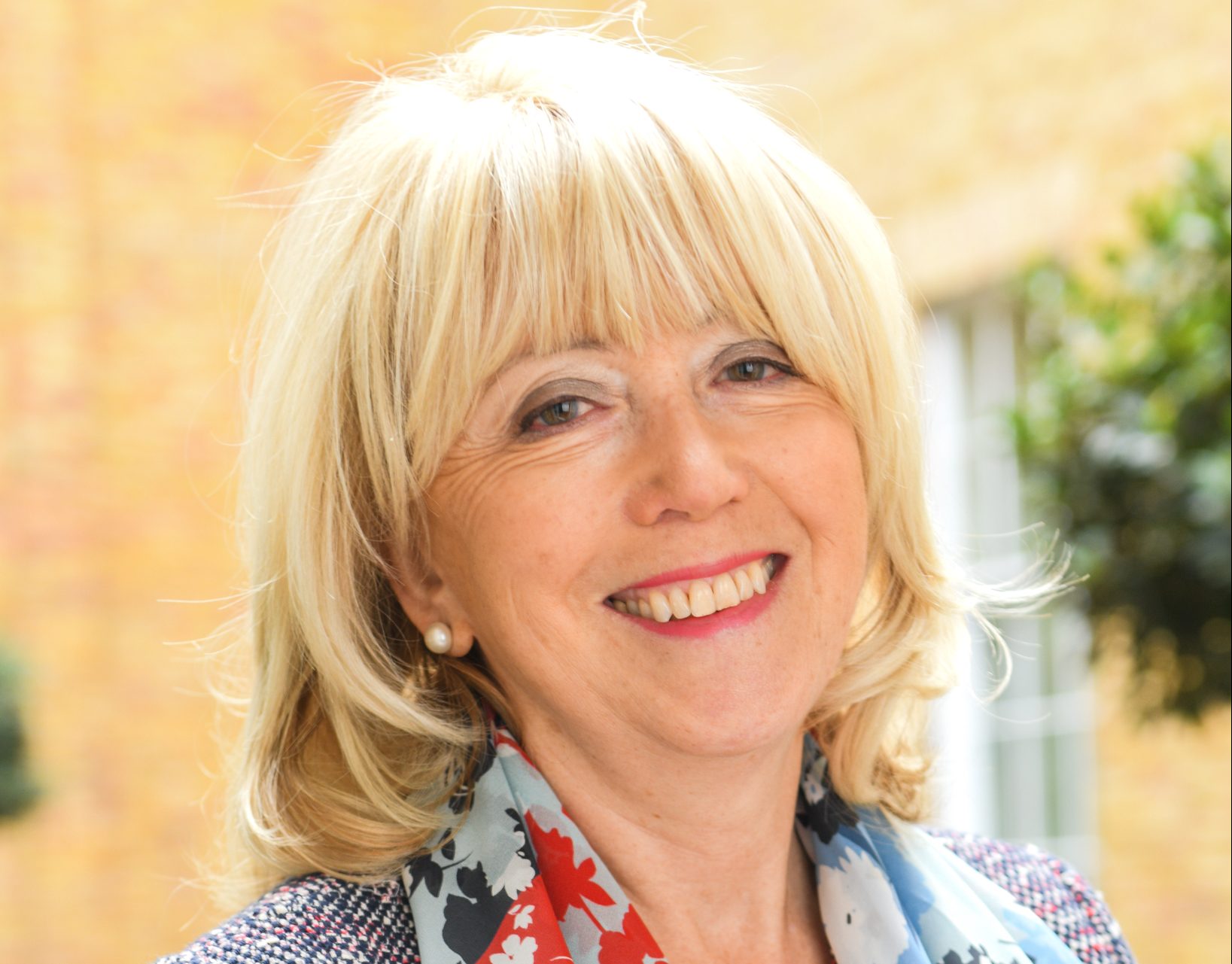With around 200 delegates attending each of the two days, LaingBuisson’s virtual
Private Healthcare Summit was the largest gathering of key stakeholders in the sector
since the UK Covid-19 lockdown began. We report from the event, which heard how
independent hospitals have risen to the challenges of their contracts with the NHS and what the future might hold as they begin to reopen private pay services
The private hospital market is facing a bumpy road to recovery as it emerges from what could be just the first wave of the Covid-19 pandemic.
Hospitals are slowly beginning to open up to private patients following three months of dedicating almost all of their capacity to the NHS, but as delegates attending LaingBuisson’s Private Healthcare Summit heard last month, the deeper relationships that have developed with the NHS along with accelerated adoption of telemedicine could also have a lasting impact on a sector which was ripe for change.
Janene Madden, CEO of HCA’s London Bridge Hospital told the conference that private consultants had been ‘vying’ for theatre time to clear their waiting list backlogs since it was announced that some private patient activity could resume in June. The hospital has been running slots 12 hours a day, seven days a week to accommodate private work while continuing to treat NHS patients under the national contract with NHS England. However, she said private patient activity looked unlikely to return to pre-Covid-19 levels in the short-term.
‘My gut feeling is that we are going to be really busy to the end of this NHS contract because it’s fitting in our private work, our backlog. It’s sat there,’ she said. ‘I’m worried that the front end is not there. We are extremely quiet in outpatients. I sit here with a huge number of consulting rooms, 150 consulting rooms, and a very, very busy outpatients.
‘Nearly half of my businesses is outpatients and diagnostics, and it’s been in theory closed down at the moment, and very quiet, so we need to re-energise the front end to get the surgery through.’
Philip Luce, hospital director at Bupa Cromwell in Knightsbridge, agreed that the sector was likely to see a burst of activity over the coming weeks as it continued to meet NHS demand and see the backlog of private patients.
‘Although it is predominantly happening outside of normal working hours after five o’clock and at weekends, the demand is certainly there. However, depending on what that NHS partnership looks like going forward and depending on how many patients return to London
and how successful we are reaching out to those patients remotely who are working from home, that could prove very different as we move through September towards the latter part of the year. I think the market is incredibly fragile,’ he said.
From an international market perspective, Luce said anecdotal evidence from some of the larger referring offices showed a 60-85% reduction in the number of patients being referred to the UK. The hospital is beginning to take enquiries from international patients, particularly from Kuwait and Qatar where domestic healthcare services have been severely limited, but Luce said it would be ‘incredibly important’ to demonstrate that the UK private sector has ‘Covid-green’ sites.
‘I think for London, in particular where we’ve been particularly hit with Covid-19, it’s going to be incredibly important that we’re able to demonstrate that coming to London is safe and having a surgical procedure or an outpatient appointment isn’t going to increase the risk to you as a person or to your family,’ he said.
Madden said falling oil prices and the UK’s overall response to the Covid-19 pandemic could impact the international private patient market, while domestic patients would need additional reassurance that facilities are safe.
‘We are open for business now for private patients and I think our shared mission is to stimulate the private health care market,’ she said.
‘We’ve already demonstrated that we are safe and able to operate through Covid and with surgery, very complex surgery, and we need to get that message out there as a private healthcare sector.
We also need to create and think wisely about the new opportunities that are out there with telemedicine.’
Digital solutions
Carol Kefford, chief nurse and clinical director at Nuffield Health, told the conference that the sector could seize on the opportunities presented by the accelerated adoption of telemedicine and remote consultations during the pandemic.
‘Our patients and consultants now embrace [telemedicine] to a degree that it would probably have taken years otherwise,’ she said.
‘But for us at Nuffield Health that hasn’t just been the consultant outpatient appointments and MDTs. We’ve had tremendous success with virtual physiotherapy. There’s something a bit counter-intuitive about that, but nevertheless, it’s been incredibly successful.’
However, she warned that the virtual experience would need to be carefully managed for both patients and consultants.
‘The patient still needs to feel that they’re getting value for money, they need to feel that they have been seen properly. And our consultants need to have the confidence that the clinical assessment that they have made virtually is as robust and as good as what they would be able to do in the room. And so that’s why there needs to be a bit of balancing between the two.
‘But we also need to embed that technology and we need to embed those processes fast,’ she added.
Luce said that video consultations had transformed Bupa Cromwell’s business over the last three months. The hospital’s online platform is now being used by consultants, allied health professionals, dieticians and counsellors as well as for MDT meetings.
‘And, according to Luce, this telemedicine will provide a key route to both domestic and overseas patients in the post-Covid healthcare landscape.
‘There are many less corporate customers, corporate insurance customers based in the city. And so that clearly restricts our access to those types of patients. However, video consultations can play a really important part in reaching out to those patients who are working at home.
‘And certainly we’ve got a very big and active programme of patient engagement to reach out to those patients who are in the home counties and a number of our consultants have seen a real surge in demand over the last two or three,’ he said.
WE’VE BUILT NEW
RELATIONSHIPS AND
THE RELATIONSHIPS
WITH THE NHS THAT
OUR HOSPITALS
ARE ESTABLISHING
LOCALLY AS WELL
AS NATIONALLY AND
CENTRALLY, ARE
REALLY SIGNIFICANT
Working with the NHS
The 200 delegates who attended the virtual conference also heard how working with the NHS during the pandemic had reset the relationship between the sector and local healthcare systems.
Speakers told how their hospitals had been transformed in a matter of weeks to treat NHS patients and dovetail with NHS pathways.
Madden, whose hospital has completed over 1,250 complex surgeries for NHS patients since the start of the contract, said the hospital had enhanced its relationship with the NHS at all levels.
‘I guess the fact that I’m most proud of is that we’ve managed to get through and manage these patients safely and we’ve had zero Covid infections post-surgery to date, which I think really does prove that the private sector can come through and deliver at this time,’ she added.
According to Kefford, a key development has been the relationships developed at practitioner level throughout the charity’s 31 hospitals.
‘We’ve all built new relationships and for me the relationships with the NHS that our hospitals are establishing locally as well as nationally and centrally, are really significant. There have been some pockets of difficulty in those local relationships, there are always pockets of difficulty, but what’s been interesting and what we can now build on are those [practitioner] level relationships. Healthcare assistant to healthcare assistant, radiographer to radiographer, they are building different ways of working and relationships together,’ she said.
Like Madden, Luce told delegates that Bupa Cromwell now had an enhanced relationship with the NHS and, going forward, was well placed to support local health systems in the delivery of complex care.
Looking ahead, he said: ‘I think there are opportunities for quite significant growth, whether that be through partnership with the NHS, to do some of that time critical or elective surgery, whether that be through self-pay, or whether that be through reaching out to patients and creating more streamlined diagnostic pathways.’
This rapidly evolving healthcare environment is likely to remain ‘turbulent, complex and unpredictable’, said Kefford, with uncertainties, not least of which will be the progress of the virus itself, remaining in play for many months to come.
However, she believes it is how hospitals navigate through the changing landscape to the practicalities that will be important.
‘It’s a sequence of ‘next normals’, it’s going to keep changing. So rather than a singular new normal, we need to stay alert. And I know that’s a rather criticised and somewhat hackneyed call to action, but it does seem to fit the situation that we’re in now,’ she said.
‘And that’s about being alert to the new insights on the virus itself, and the implications of those insights for our practice. It’s about staying alert to slipping back into the old and familiar ways of working. And we mustn’t miss those opportunities to improve.
‘We’ve got to stay alert to them. We’ve got to be alert to what others are doing and that’s each other as well as for a multi-site organisation like Nuffield. We’ve got to keep sharing this learning. We’ve got to share the innovations and we’ve got to be sure in the great practice that’s starting to emerge. And for all of that, it’s about staying nimble.
‘We’ve got to stay light on our feet, we’ve got to be able to respond quickly and effectively. And that’s in the best interests of our patients and the wider world of healthcare.’








 ©2024 All rights reserved LaingBuisson
©2024 All rights reserved LaingBuisson 


